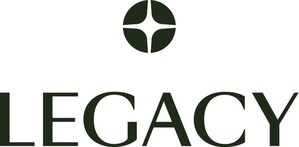New Study Gauges Public Support for a Potential FDA-Mandated Reduction in Cigarettes' Most Addictive Chemical Compound
WASHINGTON, Jan. 17, 2013 /PRNewswire-USNewswire/ -- A study released online today by the American Journal of Public Health shows strong public support – nearly 50 percent -- for a potential federal mandate to reduce nicotine content in cigarettes. Under the Family Smoking Prevention and Tobacco Control Act of 2009, the U.S. Food and Drug Administration (FDA) has the authority to reduce nicotine levels – but not to zero. While the FDA has not yet acted on this authority, the new data provides a glimpse into public sentiment around the issue.
(Logo: http://photos.prnewswire.com/prnh/20101101/DC86294LOGO)
Cigarettes are the most addictive and deadly type of tobacco product - delivering nicotine rapidly and efficiently. Despite the well-documented harm from tobacco use and tobacco-related diseases, 46 million Americans smoke. Each year, more than 400,000 people die from tobacco-related diseases, while cigarettes addict 1,200 new "replacement" smokers each day.
"Nicotine reduction could be a promising tool to protect the population from the harm and death caused by tobacco products," said Jennifer Pearson, PhD, MPH, Research Investigator for the Schroeder Institute and lead author of the study. "This study shows us that such measures could be acceptable to a large number of Americans," she added.
The study presents nationally representative data from a June 2010 survey and found:
- Nearly half (46.7 percent) of U.S. adults agreed the FDA should reduce levels of nicotine in cigarettes. Only 16.5% disagreed and another 37.8% neither agreed nor disagreed or had no opinion.
- Smokers who were interested in quitting are more likely to support regulation than smokers who are not thinking of quitting.
- African Americans, Hispanics, and those with lower education levels were especially supportive of nicotine reduction.
Nicotine reduction in cigarettes to non-addictive levels has been a controversial topic in tobacco control; however, it is within the authority of the U.S. Food and Drug Administration since it was granted regulatory authority over tobacco products in 2009.
"This data could be helpful to FDA in gauging public sentiment and tailoring its messaging if the agency chooses to move forward with such regulation," said Pearson.
While tobacco company executives testified before Congress in 1994 that they believed cigarettes were not addictive, the courts have found that Big Tobacco intentionally manipulated its products' nicotine levels in order to create and sustain addiction. Scientists continue to study the extent to which nicotine changes the brain and drives addiction. "It is possible that early nicotine exposure on the developing brain for young teens who smoke or children whose mothers smoked during pregnancy could result in more long-lasting or permanent changes in the structure and functions of the brain," said David Abrams, PhD, Executive Director of the Schroeder Institute.
Public health experts and researchers at the Schroeder Institute for Tobacco Research and Policy Studies at Legacy suggest that decreasing nicotine in cigarettes could not only reduce youth smoking uptake, but also may render cigarettes easier to quit. Both steps could help curb the toll of tobacco-related disease, and ultimately save lives.
Legacy helps people live longer, healthier lives by building a world where young people reject tobacco and anyone can quit. Legacy's proven-effective and nationally recognized public education programs include truth®, the national youth smoking prevention campaign that has been cited as contributing to significant declines in youth smoking; EX®, an innovative public health program designed to speak to smokers in their own language and change the way they approach quitting; and research initiatives exploring the causes, consequences and approaches to reducing tobacco use. Located in Washington, D.C., the foundation was created as a result of the November 1998 Master Settlement Agreement (MSA) reached between attorneys general from 46 states, five U.S. territories and the tobacco industry. To learn more about Legacy's life-saving programs, visit www.LegacyForHealth.org.
Follow us on Twitter @legacyforhealth and Facebook www.Facebook.com/Legacy.
SOURCE Legacy
WANT YOUR COMPANY'S NEWS FEATURED ON PRNEWSWIRE.COM?
Newsrooms &
Influencers
Digital Media
Outlets
Journalists
Opted In





Share this article